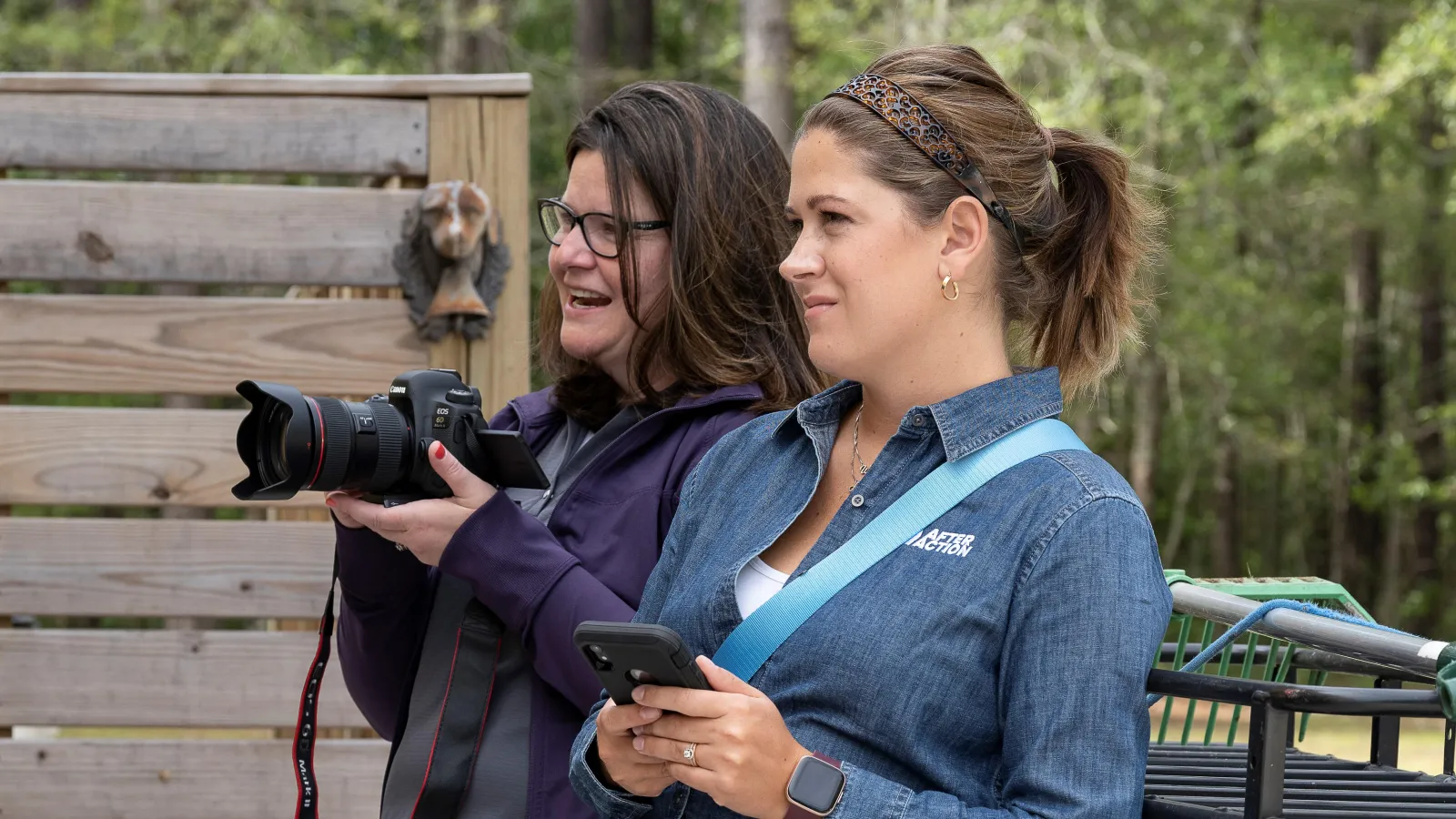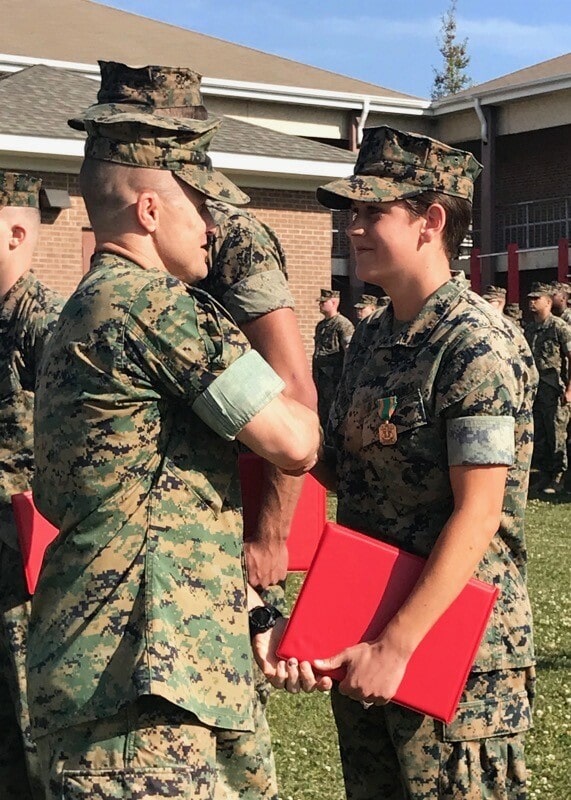
My Hopes for After Action From the Associate Producer
I joined the Marine Corps when I was 18 years old. I left for boot camp shortly after I graduated high school. I spent the next four years transforming into who I am today. The discipline, respect for my superiors, and constant desire to improve myself were traits that I would take with me after I got out of the military. I would also mature exponentially when I had my daughter in 2016. The military gave me the drive to pursue my goals and dreams. It also helped me realize that I was no longer dedicated to the Marine Corps like I had been before I had my daughter. I didn’t want to deploy or go on training operations anymore. I wanted to be home with her. So, I headed down a different path and decided to further my education.
When I started my journey to obtain my associate degree and then my BA in communication studies, I felt like a fish out of water. I had no idea how to talk to the other students, and I could tell they didn’t know how to interact with me. Many of them were fresh out of high school. I was a 23-year-old veteran who took my classes seriously, dressed professionally every day, and never disrespected my professors. I didn’t fit in. It wasn’t until I started working at my first college’s Veteran Affairs Education Benefit office that I started to find my place. But this was because I was surrounded by like-minded people who shared my experiences. This has been a common theme that I’ve experienced since getting out of the military. I’m constantly trying to figure out where I “fit in” or which crowd I belong in at school, work, and even among neighbors.
My husband is still an active-duty Marine, and I find myself getting along easier with his peers than my own now that I am a “military spouse.” This is something I hear from many of my veteran friends. They have a hard time making connections with civilians. They struggle to find a workplace they feel at ease with. Some of them even join the reserves because they miss the camaraderie. So often, I would find myself wondering, “Why?” Where does this disconnect truly lie and why do we (the veterans and civilians) feel repelled to start this conversation?
When I got brought on to be the Associate Producer for “After Action,” I knew immediately that this project would be important. Not just to me and the others who are working on it, but the viewers that this series would capture. Veterans and civilians can gain an “inside” to our conversations, our world, and our perspectives. I think when veterans watch “After Action” they will feel the camaraderie the veterans on the show share. They too will be taken back to memories they may have forgotten. And hopefully, they will realize that it’s okay to be open and share some of these secrets that they hide within them.
My hope for this series is that civilians will see how we interact with one another, how our conversations go, and that we don’t mind being asked the harder questions. Although I will always appreciate the “Thank you for your service” comments, I think we can go beyond this and into a more in-depth appreciation of our veterans and the communities that support them.

Share